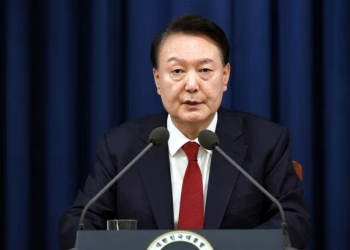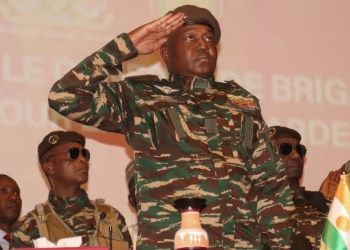The Orange Democratic Movement (ODM) is facing a significant divide as leaders adopt opposing stances on President William Ruto and opposition chief Raila Odinga’s political agreement.
Two factions have emerged within the 19-year-old party: the ODM-in-opposition and the ODM-in-government, just a month after the truce. Raila, who has led the party since its formation in 2005, has managed to keep ODM stable, rivaling the historic Kanu party.
Now, however, two groups are pulling in different directions. One faction, led by acting party leader Anyang’ Nyong’o and ODM chairperson Gladys Wanga, appears to favor collaboration with the administration. Meanwhile, a more radical anti-government faction, centered around Nairobi Senator Edwin Sifuna, has emerged.
Recently, Nyong’o urged ODM members to back the broader government initiative, a sentiment believed to align with Raila’s views. Wanga has also expressed support for Ruto in his conflict with Deputy President Rigathi Gachagua.
Nairobi ODM chairman George Aladwa emphasized that it’s time for ODM to reciprocate the government’s outreach and support Ruto’s administration. He stated, “Our democracy accommodates both government and opposition, but sometimes we must set aside our differences for the country’s common good.”
Conversely, Sifuna’s group met in Ugenya, hosted by Siaya Governor James Orengo, and reaffirmed their detachment from Ruto’s administration, despite four party members joining the broader government.
Raila’s sister, Ruth Odinga, argued that ODM should not lose its identity by merging with UDA, asserting, “UDA is a small party. ODM is one of the largest parties, and they should join us instead.”
Ruth characterized the political agreement as a “come-we-stay marriage,” which they will not accept, insisting, “The rest of us have not entered into this arrangement.”
The gathering included Raila’s wife, Ida Odinga, Cooperatives CS Wycliffe Oparanya, and ODM Deputy Leader Godfrey Osotsi. Sifuna declared that the party will remain committed to its mission as a pro-people entity, stating, “As Secretary General, I won’t allow our party to falter for minor gains.”
Oparanya explained that he hesitated to join the government but ultimately accepted after Raila argued it was necessary for stabilizing the nation. He said, “I did not seek the CS position; I was persuaded that it was crucial to prevent further national issues.”
Osotsi emphasized that ODM must retain its identity as the people’s advocate, insisting, “The party should remain strong and distinct, founded on democratic principles.”















